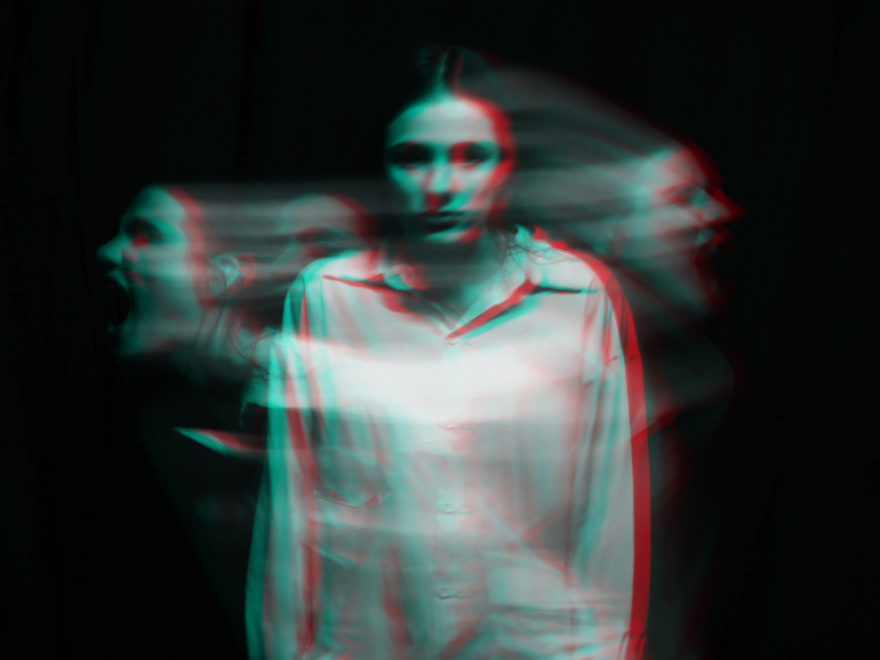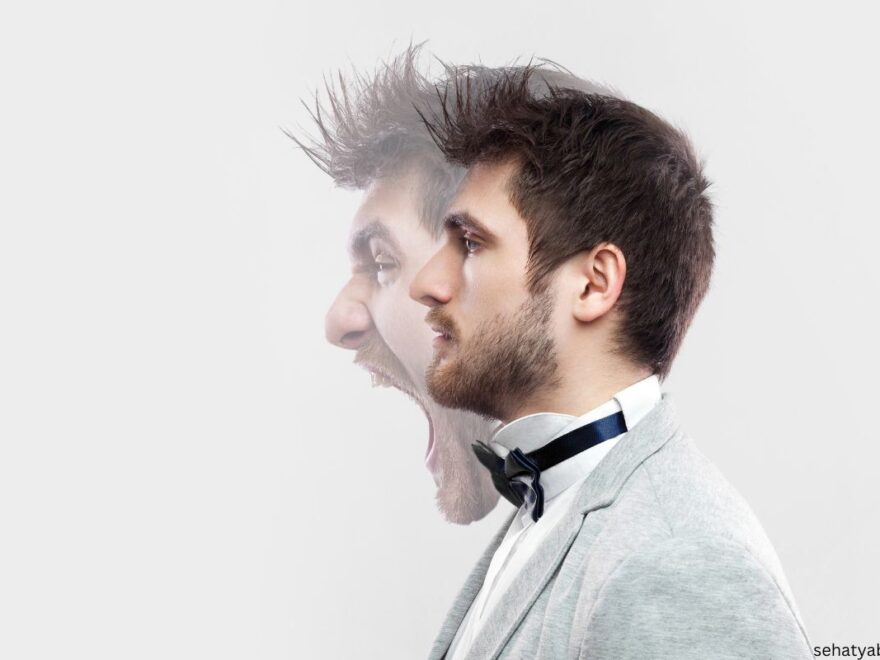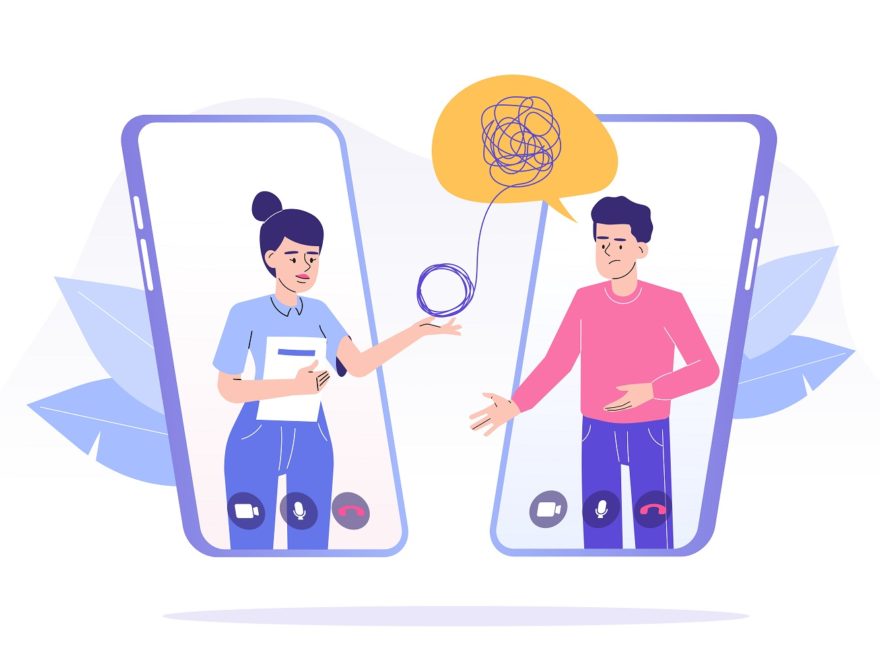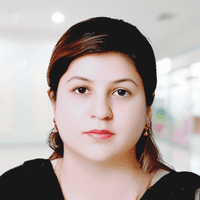Bipolar Disorder
Bipolar disorder, or manic depression, causes extreme mood swings between emotional highs (mania or hypomania) and lows (depression). Hypomania is less severe than mania.
Depression brings sadness and loss of interest, while mania causes euphoria, high energy, or irritability. These shifts impact sleep, energy, judgment, and thinking. Mood swings can occur rarely or multiple times a year, lasting several days. Some experience long emotional stability between episodes, while others have frequent shifts.
Though lifelong, bipolar disorder is manageable with treatment, typically involving medication and talk therapy (psychotherapy).

Symptoms of Bipolar Disorder
There are several types of bipolar and related disorders:
- Bipolar I disorder. You’ve had at least one manic episode that may come before or after a hypomanic or significant period of depression. In some cases, mania may cause a break from reality. This is called psychosis.
- Bipolar II disorder. You’ve had at least one major depressive episode and at least one hypomanic episode. But you’ve never had a manic episode.
- Cyclothymia. You’ve had at least two years — or one year in children and teenagers — of many periods of hypomania symptoms and periods of depressive symptoms. These symptoms are less severe than major depression.
- Other types. These types include bipolar and related disorders caused by certain drugs or alcohol or due to a medical condition, such as Cushing’s disease, multiple sclerosis, or stroke.
These types may include mania or hypomania, which is less extreme than mania, and depression. Symptoms can cause changes in mood and behavior that can’t be predicted. This can lead to a lot of distress and cause you to have a hard time in life.
Mania and Hypomania
Mania and hypomania are different, but they have the same symptoms. Mania is more extreme than hypomania. It causes more noticeable problems at work, school and social activities, and getting along with others. Mania also may cause a break from reality, known as psychosis. You may need to stay in a hospital for treatment.
Manic and hypomanic episodes include three or more of these symptoms:
- Being much more active, energetic, or upset than usual.
- Feeling a false sense of well-being or too self-confident.
- Needing much less sleep than usual.
- Being unusually talkative and talking fast.
- Having racing thoughts or jumping quickly from one topic to another.
- Being easy to distract.
- Making poor decisions. For example, you may make many unnecessary purchases, take sexual risks, or make foolish investments.
Major Depressive Episode
A major depressive episode includes symptoms that are severe enough to cause you to have a hard time doing day-to-day activities. These activities include going to work or school, participating in social activities, and getting along with others.
An episode includes five or more of these symptoms:
- Having a depressed mood. You may feel sad, empty, hopeless, or always ready to cry.
- Children and teens who are depressed can seem annoyed or angry.
- Feeling no pleasure in all or most activities.
- Losing a lot of weight when not dieting or overeating and gaining weight. When children don’t gain weight as expected, this can be a sign of depression.
- Sleeping too little or too much.
- Feeling restless or acting slower than usual.
- Being very tired or losing energy.
- Feeling too guilty, or feeling guilty when it’s not necessary.
- Having a hard time thinking or concentrating or being unable to make decisions.
- Thinking about, planning, or attempting suicide.
Other Features of Bipolar Disorder
Symptoms of bipolar disorders, including depressive episodes, may include other features, such as:
- Anxious distress is when you’re feeling symptoms of anxiety and fear that you’re losing control.
- Melancholy is when you feel very sad and have an extreme loss of pleasure.
- Psychosis is when your thoughts or emotions disconnect from reality.
The timing of symptoms may be described as:
- Mixed, when you have symptoms of depression and mania or hypomania at the same time.
- Rapid cycling is when you have four mood episodes in the past year where you switch between mania, hypomania, and major depression.
Also, bipolar symptoms may happen when you’re pregnant. Or symptoms can change with the seasons.
Symptoms in Children and Teens
Symptoms of bipolar disorder can be hard to identify in children and teens. It’s often hard to tell whether these symptoms are the usual ups and downs due to stress or trauma or if they’re signs of a mental health problem other than bipolar disorder.
Children and teens may have distinct major depressive manic or hypomanic episodes. However, the pattern can vary for adults with bipolar disorder. Moods can shift fast during episodes. Some children may have periods without mood symptoms between episodes.
The most noticeable signs of bipolar disorder in children and teenagers may be severe mood swings that aren’t like their usual mood swings.
When to See A Doctor?
Despite their mood extremes, people with bipolar disorder often don’t know how much being emotionally unstable affects their lives and the lives of their loved ones. As a result, they don’t get the treatment they need.
If you’re like some people with bipolar disorder, you may enjoy the feelings of excitement and cycles of being more productive. But an emotional crash always follows this euphoria. This crash can leave you depressed and worn out. It could cause you to have problems getting along with others. It also could leave you in financial or legal trouble.
If you have any symptoms of depression or mania, see your healthcare or mental health professional. Bipolar disorder doesn’t get better on its own. A mental health professional with experience in bipolar disorder can help you get your symptoms under control.
Causes of Bipolar Disorder
While it’s not known what causes bipolar disorder, these factors may be involved:
- Biological differences. People with bipolar disorder appear to have physical changes in their brains. The importance of these changes is still uncertain, but more research may help identify why these changes happen.
- Genetics. Bipolar disorder is more common in people who have a first-degree relative, such as a sibling or parent, with the condition. Researchers are trying to find genes that may cause bipolar disorder.
Risk factors of Bipolar disorder
Factors that may raise the risk of getting bipolar disorder or cause the first episode include:
- Having a first-degree relative, such as a parent or sibling, with bipolar disorder.
- Periods of high stress, such as the death of a loved one or another traumatic event.
- Drug or alcohol misuse.
Complications
Left untreated, bipolar disorder can lead to serious problems that affect every area of your life, including:
- Issues related to drug and alcohol misuse.
- Suicide or suicide attempts.
- Legal or financial problems.
- Trouble getting along with others.
- Poor work or school performance.
Conditions That Occur At The Same Time
Sometimes, what seems to be bipolar disorder might be another disorder. Or, the symptoms of bipolar disorder might overlap with other disorders, and you also may have another health condition that needs to be treated along with bipolar disorder. Some conditions can make bipolar disorder symptoms worse or make treatment less successful.
Examples include:
- Anxiety disorders.
- Eating disorders.
- Attention-deficit/hyperactivity disorder (ADHD).
- Post-traumatic stress disorder (PTSD).
- Alcohol or drug misuse.
- Borderline personality traits or disorders.
- Physical health problems, such as heart disease, thyroid issues, headaches or obesity.
Prevention of Bipolar disorder
There’s no sure way to prevent bipolar disorder. But getting treated as soon as you notice a mental health disorder can help stop bipolar disorder or other mental health conditions from getting worse.
If you’ve been diagnosed with bipolar disorder, here are some ways you can stop minor symptoms from becoming full-blown episodes of mania or depression:
- Pay attention to negative signs. Talking with your care team about early symptoms can stop episodes from going bad. You may have found a pattern to your bipolar episodes and what causes them. Call your doctor or mental health professional if you feel you’re starting to have an episode of depression or mania. Ask your family members or friends to watch for warning signs.
- Get enough sleep. Sleep disturbances often cause bipolar instability.
- Stay away from drugs and alcohol. Drinking alcohol or taking street drugs can make your symptoms worse and make them more likely to come back.
- Take your medicines as directed. You may be tempted to stop treatment, but don’t. Stopping your medicine or lowering your dose on your own may cause withdrawal effects. Also, your symptoms may get worse or return.
Diagnosis of Bipolar Disorder
To find out if you have bipolar disorder, your evaluation may include:
- Physical exam. Your healthcare professional may do a physical exam and lab tests to find any medical problems causing your symptoms.
- Mental health assessment. Your healthcare professional may refer you to a psychiatrist, who will talk about your thoughts, feelings, and behavior patterns. You also may answer a series of questions. With your permission, family members or close friends may be asked to provide information about your symptoms.
- Mood charting. You may be asked to keep a daily record of your moods, sleep patterns or other factors that could help make the proper diagnosis and get you the right treatment.
Diagnosis in Children
Although children and teenagers with bipolar disorder are diagnosed with bipolar disorder based on the same criteria used for adults, symptoms in children and teens often have different patterns. These patterns may not fit neatly into diagnostic categories.
Also, children who have bipolar disorder are often diagnosed with other mental health conditions, such as ADHD or behavior problems. This can make the diagnosis difficult. These children may need to see a child psychiatrist with experience in bipolar disorder.
Treatment of Bipolar Disorder
Treatment is best guided by a medical doctor who diagnoses and treats mental health conditions (psychiatrist) who is skilled in treating bipolar and related disorders. Your care team may include a psychologist, social worker, or psychiatric nurse.
Bipolar disorder is a lifelong condition, with treatment directed to manage symptoms.
Depending on your needs, treatment may include:
- Medicines. You’ll need to start taking medicines right away to balance your moods.
- Ongoing treatment. You need to take your medicine for the rest of your life — even when you feel better. If you don’t keep taking your medicine, your symptoms could come back, or minor mood changes could turn into full-blown mania or depression.
- Intensive outpatient programs or a program involving a partial stay in a hospital. These programs provide extended support and counseling that lasts a few hours per day for several weeks to help you get symptoms under control.
- Treatment for alcohol or drug misuse. If you have problems with alcohol or drugs, you’ll also need therapy for this misuse. Without this treatment, it can be tough to manage bipolar disorder.
- A hospital stay. Your healthcare professional may recommend that you stay in a hospital if you’re behaving dangerously or thinking about suicide or you’ve become detached from reality. Mental health treatment at a hospital can keep you calm and safe and stabilize your mood. This is true whether you’re having a manic or major depressive episode.
The main treatments for bipolar disorder include medicines and talk therapy, also known as psychotherapy, to control symptoms. Treatment also may consist of education and support groups.
Medicines for Bipolar Disorder
Several medicines are used to treat bipolar disorder. The types and doses of medications prescribed are based on your symptoms. Usually, you’ll need a mood stabilizer or an antipsychotic medicine that functions as a mood stabilizer.
Medicines may include:
- Mood stabilizers. Mood-stabilizing medicines help control manic or hypomanic episodes. They also may help depressive bouts. Examples include lithium, valproic acid, divalproex sodium, carbamazepine, and lamotrigine.
- Antipsychotics. Antipsychotics may be used by themselves or with mood stabilizers. Examples of antipsychotic drugs are olanzapine, risperidone, quetiapine, aripiprazole, ziprasidone, lurasidone, asenapine, lumateperone and cariprazine.
- Antidepressants. Your healthcare professional may cautiously add an antidepressant to manage depression. However, an antidepressant can sometimes cause a manic or hypomanic episode. Antidepressants should be prescribed along with a mood stabilizer or antipsychotic medicine.
- Antianxiety medicines. They may ease anxiety and make you sleep better. But they’re usually used short-term as they can be misused when taken for a long time.
Finding The Right Medicine
Finding the correct medicine for you will likely take some trial and error. If one doesn’t work well for you, there may be others to try. Sometimes, two or three medicines are used at the same time. This process requires patience, as some drugs need weeks to months to take full effect. Periodic or routine blood monitoring may be required for specific medicines.
Generally, your healthcare professional changes only one medicine at a time. This is done to determine which medicines improve your symptoms with the least bothersome side effects. Your healthcare professional also may need to change your medicines as your symptoms change.
Side Effects
You may have side effects with medicines. Some side effects may improve as your healthcare professional adjusts the dose and your body gets used to the medication. Talk to your healthcare professional or mental health professional to find an effective medication with minimal side effects.
Don’t make changes or stop taking your medicines. If you stop your medicine, you may have withdrawal effects, or your symptoms may get worse or return. You may become very depressed, think about suicide, or go into a manic or hypomanic episode. Call your healthcare professional if you need to make a change.
Medicines and Pregnancy
A few medicines for bipolar disorder can be linked to birth defects. These medicines may pass through breast milk to the baby. Every medicine is different, so you should talk with your prescriber. Valproic acid and divalproex sodium have a specific warning that they are to be avoided when pregnant. Carbamazepine, a mood stabilizer, may make certain birth control medicines less effective.
If possible, talk with your healthcare professional about treatment options before you become pregnant. If you’re taking medicine to treat your bipolar disorder and think you may be pregnant, talk to your healthcare professional right away.
Talk Therapy
Talk therapy, also called psychotherapy, is a vital part of bipolar disorder treatment. This treatment can be provided in individual, family, or group settings.
Several types of therapy may help, including:
- Interpersonal and social rhythm therapy. This therapy stabilizes daily rhythms, including sleeping, waking, and eating. A consistent routine helps manage moods. A daily routine for sleep, diet, and exercise may help people with bipolar disorder.
- Cognitive behavioral therapy (CBT). This therapy focuses on identifying unhealthy, negative beliefs and behaviors and replacing them with healthy, positive ones. CBT can help find what triggers your bipolar episodes. You also learn effective ways to manage stress and cope with upsetting situations.
- Psychoeducation. Learning about bipolar disorder, also known as psychoeducation, can help you and your loved ones know more about the condition. Knowing what’s going on can help you get the best support, find issues, plan to stop symptoms from returning, and continue with treatment.
- Family-focused therapy. Family support and communication can help you stay with your treatment plan. It also can help you and your loved ones see and manage warning signs of mood swings.
Sehatyab offers easy online access to some of the best psychiatrists in Pakistan, making it possible for those suffering from mental health issues like bipolar disorder. This user-friendly online platform lets you connect with trusted professionals from your home, saving you time and effort. Its high time you explore Sehatyab and book your consultation with the experts!
Other Treatment Options
Depending on your needs, your health professional may add other treatments to your depression therapy, such as:
- Electroconvulsive therapy is also known as ECT. During ECT, electrical currents pass through the brain, causing a seizure. ECT changes brain chemistry, which can reverse symptoms of certain mental illnesses. ECT may be an option to treat bipolar disorder if you don’t get better with medicines, can’t take antidepressants for health reasons such as pregnancy, or are at high risk of attempting suicide.
- Repetitive transcranial magnetic stimulation, also known as rTMS. During a series of rTMS treatment sessions, magnetic waves work on the brain to reduce depression. This treatment is being studied as an option for people with bipolar disorder who haven’t responded to antidepressants. It is not as powerful as ECT.
- Ketamine. Ketamine also is being studied as a possible treatment for bipolar depression. Limited research suggests that ketamine could be a good short-term treatment. It’s been shown to ease symptoms of depression and reduce thoughts of suicide — all within two weeks. However, the effects of ketamine include dissociative symptoms during the treatment. Patients may feel disconnected from reality and their surroundings. However, some patients also report thinking more clearly and feeling more connected with others. More studies are needed to determine the role of ketamine in the long-term treatment of bipolar disorder and create guidelines for its use.
Treatment in Children and Teenagers
Generally, doctors decide on treatments for children and teenagers on a case-by-case basis, depending on symptoms, medicine side effects, and other issues.
Generally, treatment includes:
- Medicines. There’s less research on the safety and effectiveness of bipolar medications in children than in adults, so doctors often decide on treatment based on adult research. Children and teens with bipolar disorder usually are prescribed the same types of medicines as adults. That’s because children have taken part in fewer studies. But children can respond differently to medicines than adults. Some children may need to try many medicines for the best results.
- Talk therapy. Initial and long-term treatment can help keep symptoms from returning. Talk therapy, also known as psychotherapy, can help children and teens manage their routines, cope better, handle learning difficulties, improve social problems, and strengthen family bonds and communication. If needed, talk therapy can treat alcohol or drug misuse problems common in older children and teens with bipolar disorder.
- Psychoeducation. Psychoeducation can include learning the symptoms of bipolar disorder and how they differ from behavior related to your child’s age, the situation, and proper cultural behavior. Knowing more about bipolar disorder also can help you support your child.
- Support. Teachers and school counselors can help find services. They and family and friends can encourage success.
Lifestyle and Home Remedies
You’ll probably need to make lifestyle changes to stop cycles of behavior that make your bipolar disorder worse. Here are some steps to take:
- Stop drinking or using street drugs. One of the biggest issues with bipolar disorder is the negative results of risk-taking behavior and drug or alcohol misuse. Get help if you have trouble stopping on your own.
- Form healthy relationships. Surround yourself with people who are a positive influence. Friends and family members can support and help you watch for warning signs of mood shifts.
- Create a healthy routine. A sleeping, eating, and physical activity routine can help balance your moods. Eat a healthy diet. If you take lithium, talk with your healthcare professional about how much fluid and salt you should take in. If you have trouble sleeping, talk to your healthcare or mental health professional about what you can do.
- Check first before taking other medicines. Call your healthcare professional or mental health professional before you take medicines that another health professional prescribes or any supplements or medicines available without a prescription.
- Think about keeping a mood chart. Keeping a record of your daily moods, treatments, sleep, activities, and feelings may help identify triggers, effective treatment options, and when treatment needs to be changed.
Other Medicine
There isn’t much research on other medicines — sometimes called integrative medicine — and bipolar disorder. Most studies are on major depression, so it isn’t clear how these nontraditional approaches work for bipolar disorder.
If you choose to use complementary medicine in addition to the treatment your healthcare professional recommends, take some precautions first:
- Don’t stop taking your medicines or skip therapy sessions. Alternative or complementary medicine does not replace regular medical care to treat bipolar disorder.
- Be honest with your healthcare professional and mental health professional. Tell them which alternative or complementary treatments you use or want to try.
- Get to know about potential dangers. Alternative and complementary products aren’t regulated like regular medicines. Just because it’s natural doesn’t mean it’s safe. Before using additional medicine, talk to your healthcare professional or mental health professional about the risks, including how these treatments might cause problems with the medicines you already take.
Coping and Support
Coping with bipolar disorder can be difficult. Here are some ways to help:
- Learn about bipolar disorder. Learning about your condition can motivate you to stick to your treatment plan and know when your mood changes. Help your family and friends learn about what you’re going through.
- Focus on your goals. Learning to manage bipolar disorder can take time. Stay motivated by keeping your goals in mind and reminding yourself that you can work to fix damaged relationships and other problems your mood swings cause.
- Join a support group. Support groups for people with bipolar disorder can help you connect to others facing similar challenges and share what’s going on with you.
- Find healthy outlets. Look for healthy ways to focus your energy, such as hobbies, exercise, and recreational activities.
- Learn ways to relax and manage stress. Yoga, massage, deep breathing, meditation, or other relaxation techniques can help.
Sehatyab brings top psychiatrists in Pakistan within easy reach, providing a convenient way to address your mental health needs. This online platform lets you connect with professional psychiatrists from anywhere. Expert care is now just a few clicks away. Visit Sehatyab online and schedule your appointment today!
Preparing For Your Appointment
You may start by seeing your psychiatrist. You can take a family member or friend along to your appointment for support and to help remember information.
What You Can Do?
Before your appointment, make a list of:
- Any symptoms you’ve had, including any that may seem unrelated to the appointment.
- Key personal information, including any major stresses or recent life changes.
- All medicines, vitamins, herbs, or other supplements you’re taking, and the doses.
- Questions to ask your healthcare professional.
Questions to ask your healthcare professional may include:
- Do I have bipolar disorder?
- Are there any other possible causes for my symptoms?
- What kinds of tests will I need?
- Which treatments do you recommend?
- What side effects can treatment cause?
- What are the alternatives to the treatment that you suggest?
- I have other health conditions. How can I best manage these conditions together?
- Should I see a psychiatrist or another mental health professional?
- Is there a generic alternative to the medicine you’re prescribing?
- Are there any brochures or other printed material that I can have?
- What websites do you recommend?
Don’t hesitate to ask other questions during your appointment.
What to expect from your doctor?
Your healthcare professional will likely ask you several questions:
- When did you or your loved ones first begin noticing your symptoms?
- How often do your moods change?
- Do you think about suicide when you’re feeling down?
- Do your symptoms get in the way of daily life or how well you get along with others?
- Do you have any blood relatives with bipolar disorder or depression?
- What other mental or physical health conditions do you have?
- Do you drink alcohol, smoke or chew tobacco, or use street drugs?
- How much do you sleep at night? Does the amount of sleep you get change over time?
- Do you sometimes take risks that you wouldn’t usually take, such as taking part in unsafe sex or making financial decisions that are unwise or impulsive?
- What, if anything, seems to make your symptoms better or worse?
Your psychologist will ask more questions based on your responses, symptoms, and needs. Preparing for these questions will help you make the most of your time at your appointment.
Our Doctors for Bipolar Disorder Treatment
Dr. Muhammad Ather
Psychiatrist
MBBS (RMU), DPM (Cardiff University, UK), MRCPsych (Royal College of Psychiatrist, London UK), CCT (Royal College of Psychiatrist, UK), Assistant Prof of Clinical Psychiatry
Experience: 27+ years
Dr. Syed Masroor Ali
Psychiatrist
MBBS, MCPS, Certified RANZCP Forensic Psychiatry (The Royal Australian and New Zealand College of Psychiatrists)
Experience: 35+ years
Ms. Maryam Khan
Clinical Psychologist
BSc (Psychology), MSc (Psychology) – QAU Islamabad, PGDCP (Clinical Psychology), Certified: Hypnotherapist (NGH, USA), Play Therapist, Psycho-sexual Disorder Therapist, Cognitive-behavioral Therapist
Experience: 8+ years
Ms. Kalsoom Yasin
Clinical Psychologist
MPhil (Clinical Psychology), BS (Applied Psychology), Member Australian & New Zealand Mental Health Association, Pakistan Psychological Association
Experience: 5+ years
Ms. Sukoon Fatima
Clinical Psychologist
MSc Clinical Psychologist (Gold Medalist), CPCAB-UK Certified, NLP practitioner, Certified Gestalt Associate, Certified Hypnotherapist, EMDR Asia trained, (CTA) Certified Professional Coach
Experience: 5+ years
Our blogs on Bipolar Disorder

Bipolar Disorder; Symptoms, Causes and Treatment

How Psychiatrists & Psychologists Help in Treating Bipolar Disorder
Bipolar disorder is a psychological condition that affects a person’s mood, level of energy, and ability to function. Extreme mood swings, including manic or hypomanic highs and depressive lows, characterize it.









